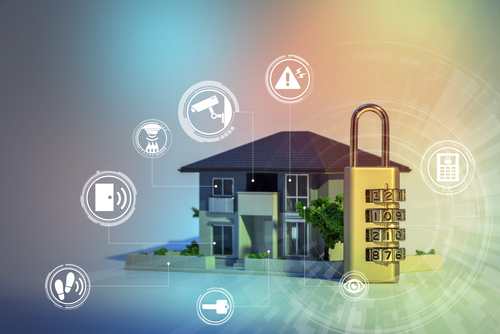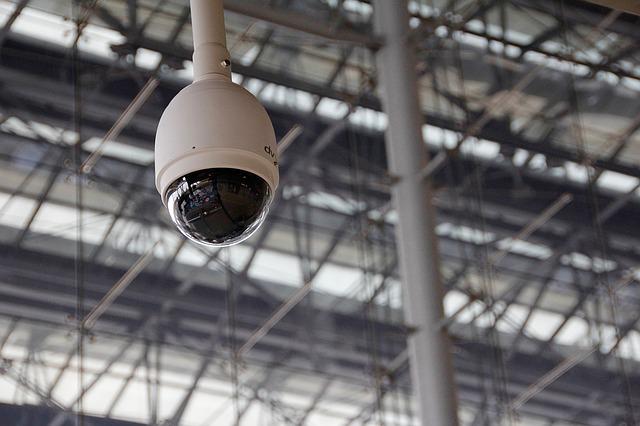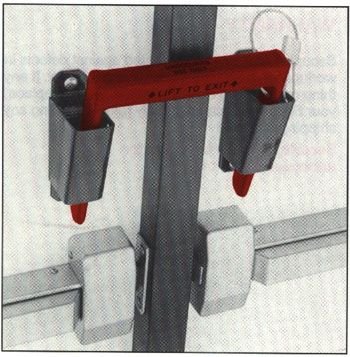
There are some downsides to DIY security camera systems. They are not compatible with all cameras in your home, and they may not provide enough protection. DIY users might also encounter motion alerts, but no video error messages. It's worth consulting the instructions, watching video guides or calling customer service for assistance in these cases. An expert installation service will place your devices and check for functionality. If necessary, they'll return to troubleshoot. It is important to determine which protection requirements are most important before you decide on DIY or professional installation. Then plan your installation accordingly.
Ring
Ring is an excellent home security system that can be used to monitor your home, without you having to hire security companies. The system requires no wiring, and is easy to put in. Once the Ring Alarm Security Kit is installed, you can use an app or keypad to check the status of your cameras. You can also upgrade to the Ring Protect Pro service, which is $20 a month and includes professional monitoring. The security company will contact you if there is a trigger and dispatch the police if they do not receive a call or you are unable to answer.

Arlo
Arlo Home Security Camera System is made for homeowners who don't want to hire a professional installer. It comes with a multisensor that detects motion, smoke, and leaks, and a keypad alarm. Many companies offer similar services. However, the Arlo System stands out because of its extra features. It has been designed to compete directly with companies like Amazon Ring and Wyze, which have yet to enter the integrated home security camera market.
QNAP NAS
A QNAP NAS home security system can be installed in your home for a number of reasons. You can easily manage all your security cameras with one simple system. It can store terabytes worth of surveillance footage, and you can playback them. Remote access is another feature. Remote access is possible via a web interface, desktop application, or mobile app. You can even set your own custom notifications.
Amazon's Blink
The Blink home surveillance camera system is an excellent option for homeowners that don't want the high price of standard security cameras. Blink Mini offers a low-cost way to test the system. It records in 1080p HD. There are motion alerts as well as two-way sound and audio. It also works with Alexa. The only problem with the Blink Mini? It has to be located near an electrical outlet.
Wyze Labs
Wyze is a good choice if you are looking for low-cost home security cameras that will protect your property. Wyze offers professional monitoring as well as DIY kits. They offer a wide variety of accessories including exterior keypads and video doorsbells. They don't have live monitoring, but they are more affordable than some competitors.

Simplisafe
The SimpliSafe home security camera system is an affordable and versatile option for anyone who wants to protect their home. The system includes indoor and outdoor video cameras as well as smoke sensors and a smart lock. Simplisafe allows you to monitor your system from any place using the app. Simplisafe can be used with Alexa or Google Assistant to ensure that no one goes home unnoticed.
FAQ
Which one is better: home security camera or home security system?
Home security systems are better than home security camera because they can detect movement and sounds even if nobody is in the room. On the other hand home security cameras are cheaper than home security systems, and they can easily be mounted on windows and doors.
How much does a quality home security system cost you?
A good home security system will cost around $2,500. It may seem like a large sum, but the security and peace of mind that you will get from a home with a good system is very affordable.
Who is the best company for home security monitoring?
ADT is the best home security company. ADT provides 24/7 monitoring services at an affordable rate. The customer support team is available 24/7 and can resolve any issue within minutes.
ADT also offers an app that works on both Android and iOS platforms. This allows you to check your home anywhere and anytime.
How do I decide between the different types of home security system?
Consider the threats in your neighborhood. If there is a lot crime in your area, you may want an alarm to sound when someone enters your home. You may not require as much security if your home is in a rural area with few burglaries.
You also need to consider whether or not you're willing pay more for these extra features. Some systems have cameras built-in, others don't. Some systems let users remotely monitor their homes, while others require them to be physically present in order for you to see the footage.
Are there any real reasons to have a home alarm system?
If you own a home, you definitely need a home security system. Anytime, a burglar can break into your home without warning. They can steal anything, including valuable jewelry and expensive electronics. And if you leave your doors unlocked, they could just walk away with everything.
Home security systems help you protect your home and notify you when something is happening. This includes monitoring motion, sending you alerts to mobile devices, recording activity, as well as allowing access to recorded footage.
A DIY camera is a great alternative to a full-blown home security system. These cameras allow you to see who is at your front door and notify you when they are entering or leaving. These devices will not help stop intruders entering your home.
What Home Security Systems are Unhackable?
This depends on what definition you use of hacking. Hacking refers only to the unauthorized use of computer systems, networks, data, and programs. Because they don't contain software that allows remote control, most home security systems can't be hacked. They will not permit anyone to enter your house without your permission.
If they are connected to an internet connection, however, certain home security systems may be compromised. These systems are usually protected by a password. Someone can hack them if the password is correct.
Statistics
- Most home security companies will charge you around 75% of the remaining term of your contract if you cancel early—and some require 100%.Related questionsWhat type of contract length can I expect from security providers?Home security system cancellation (safewise.com)
- Depending on your insurance, 24/7 professional monitoring may qualify you for as much as 15% off your premium. (safewise.com)
- (In my experience, the discount on my home insurance covered about 25 percent of the subscription of an average plan, but your mileage may vary depending on your location and the size of your home.) (theverge.com)
- Cove sets you free without punishing penalties and fees, unlike other security solutions that charge 75% to 100% of your remaining contract. (safewise.com)
External Links
How To
How to Install A Home Security System
A home security alarm is a device that monitors the property and alerts you in case of any suspicious activity. It could consist of a motion sensor and doorbell camera as well as smoke detector, smoke detectors fire alarm, flood alerts, carbon monoxide detectors and burglar alarms. A home security system typically includes one or more sensors, such as motion detectors. These sensors send signals when they sense movement or sound. The signals are then sent by the sensors to a control center where they are recorded and monitored. If something goes wrong, like someone breaking in to your house, the control panels sends an alert to your phone or tablet, your computer, or voice assistant. You will immediately be notified and can take appropriate action.
You must first choose the right kind of sensors for you home in order to install a home alarm system. There are two main types. Active and passive sensors. Passive sensors aren't powered by batteries. They just detect sounds and vibrations in their environment. These include buzzers, sirens and doorbells. Active sensors transmit data via electricity. Examples of such sensors include cameras and motion sensor.
There are many types of sensors on the market today. Each brand has its pros and cons. Some sensors can withstand extreme weather conditions, while others cannot. Some of them have built in speakers so that you can still hear them from outside. Some work only indoors. Others are more complex, while some offer more advanced features like night vision.
After deciding on the best type of sensors for your property, you'll want to choose a manufacturer. This will help you ensure your sensors work well together. The hardware store should offer many choices.
Once you have decided on a brand to use, it is time to decide on how many you want. Depending on whether someone lives alone or with their family, most people buy one to two sensors. If you have plans to purchase additional sensors in the future, it might be worth buying more than you currently need.
Next, consider where you want to put your sensors. Do you want them close to doors or windows? Do you prefer to keep them away? Make sure you get permission before placing them around your property. It is important to ensure they do not interfere with electrical outlets.
After you've determined the location of your sensors, you will need a way that they can be connected to your control panels. You might need a power adapter for your setup. Once everything is set up, it's time to start monitoring your property.